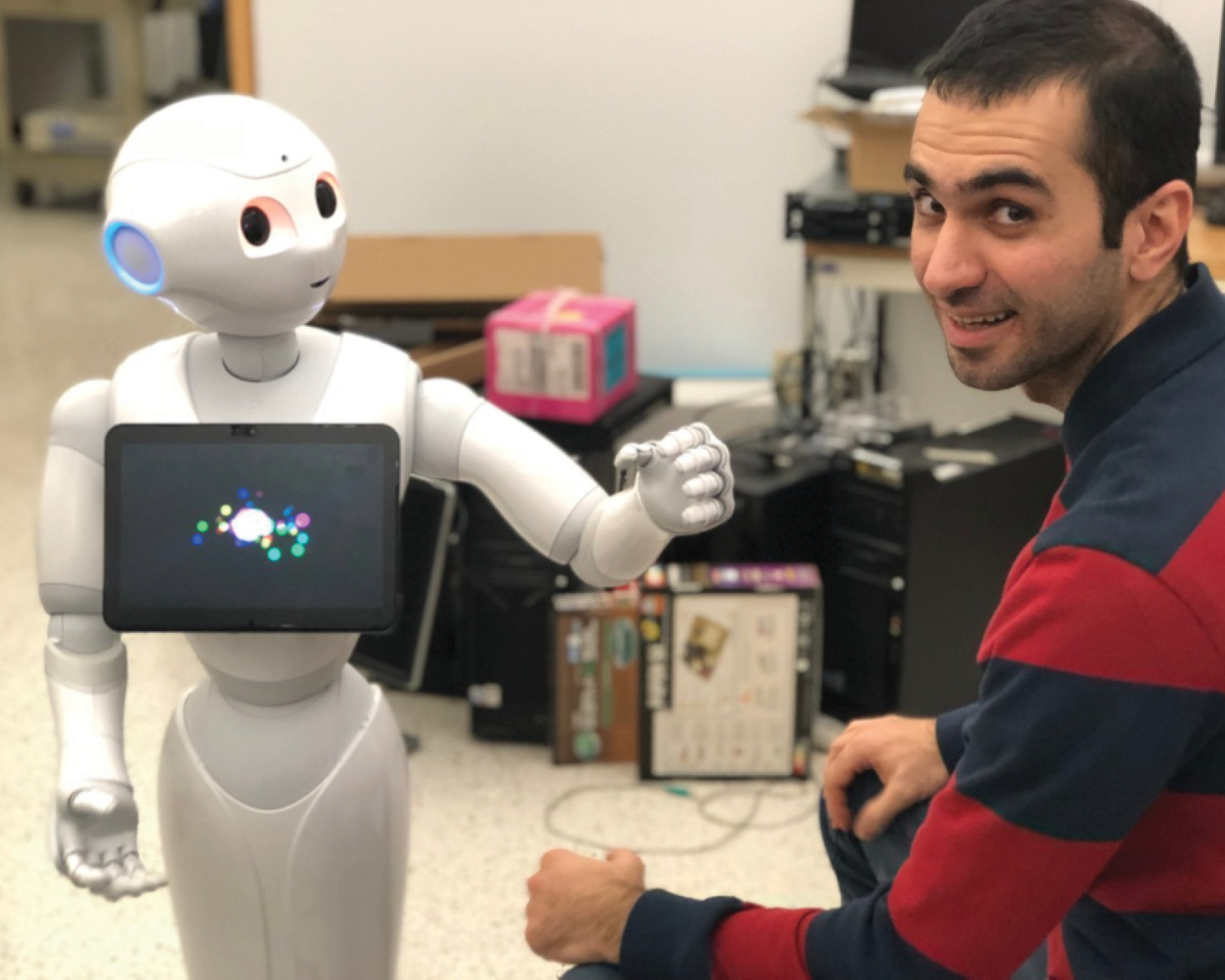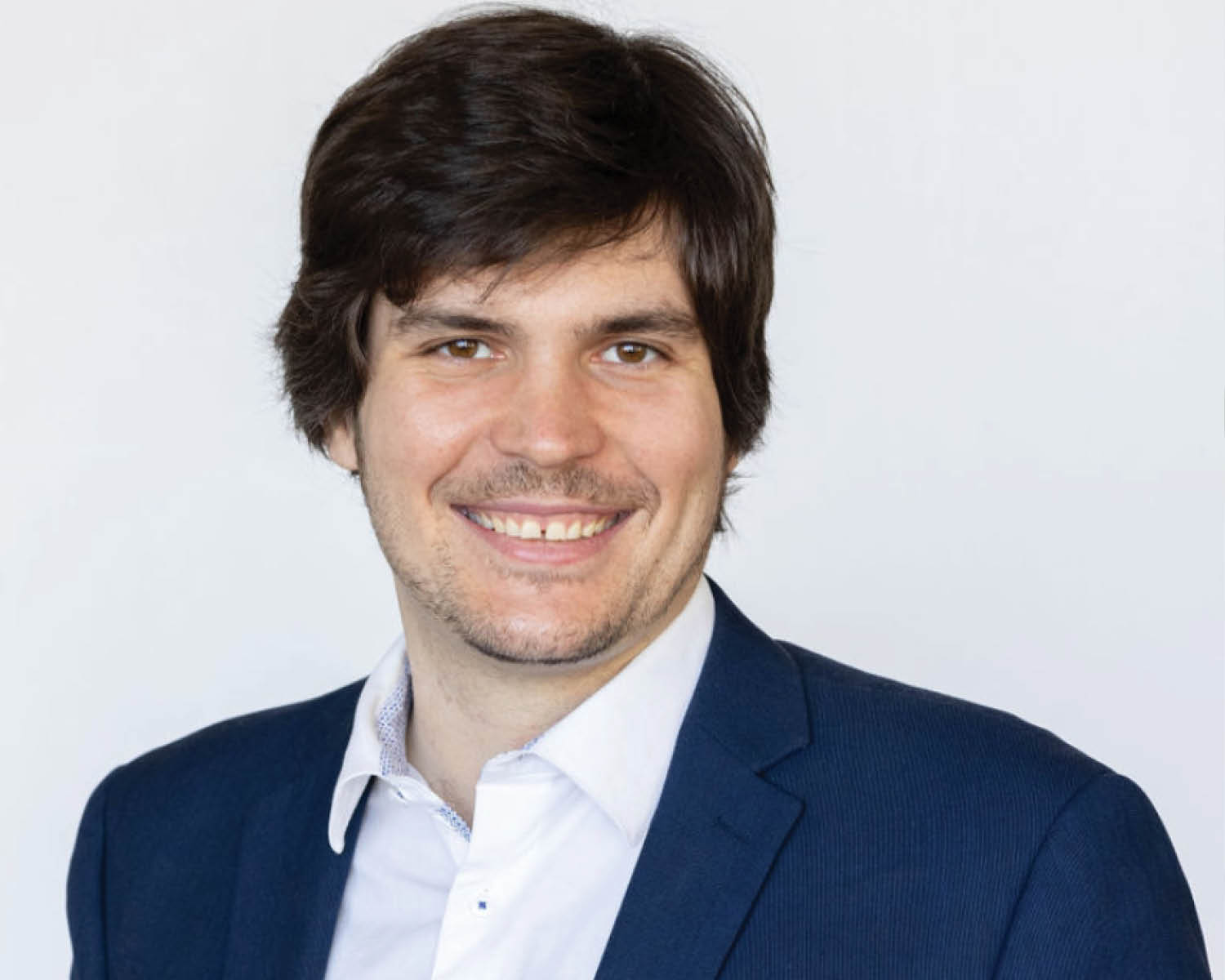
Winning the best doctoral thesis award of INRS is an important cornerstone in my academic roadmap. Such recogniton will not only spur further motivation to carry on my research on the Tactile Internet and related topics, it is also instrumental in creating future opportunities.
Amin Ebrahimzadeh (PhD Telecommunication, 2020) | Under the supervision of Martin Maier | Best doctoral dissertation award, 2020
During his doctoral studies at INRS, Amin worked on very timely and important research topics related to the Tactile Internet with a particular focus on architecture and algorithm design to address latency issues from a number of different aspects. Professor Martin Maier and him have co authored their forthcoming book "Toward 6G: A New Era of Convergence" published by the prestigious Wiley-IEEE Press. This book builds on his doctoral thesis and puts their obtained findings and results in the context of future 6G mobile networks. It will be the first book on 6G worldwide.

I’m incredibly grateful to INRS for this award, which I take as a token of appreciation from the INRS community for the work I accomplished throughout my master’s program. I believe this award will broaden the reach of my research, and that’s very motivating as I embark on future research projects.
Benjamin Crockett (M.Sc. Energy and Materials science, 2020 | Under the supervision of José Azaña | Best master's theses award, 2020
Benjamin’s doctoral research focuses on information processing, a discipline where research is usually aimed at uncovering knowledge and technology that can be applied in other sectors. For example, his research may help improve the sensitivity of bio-imaging detectors, resulting in better diagnoses. In telecommunications, it may lead to energy savings by reducing the amount of power required for a given communications channel. In radio astronomy, his breakthroughs could make it possible to detect astronomical events even farther from Earth.
For his PhD, Benjamin plans to continue working on concepts he developed during his master’s degree to design new forms of classical signal amplification and to enable simultaneous optical signal processing in the time and frequency domains, making it possible to access information otherwise inaccessible with current technologies.

The best doctoral dissertation award already had an important influence on my development right after I graduated from INRS: I was very honored to get selected for an ambitious industrial trainee program that allowed me to follow my interests and turn many dreams into reality.
Mischa Nicklaus (PhD Energy and materials sciences, 2014) | Best doctoral dissertation award, 2014
“I think the best doctoral dissertation award already had an important influence on my development right after I graduated from INRS: I was very honored to get selected for an ambitious industrial trainee program that allowed me to follow my interests and turn many dreams into reality.
Besides my own experience, I believe that in our today’s world of connected economies and global competition, excellence increasingly defines the difference between success and failure. Sparking a healthy and balanced desire for excellence in young people is therefore among the greatest achievements an educational institution can aim for.”
